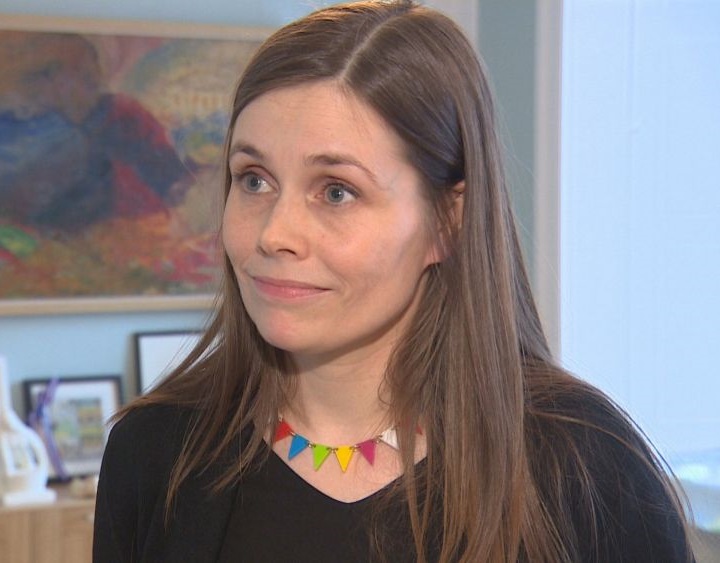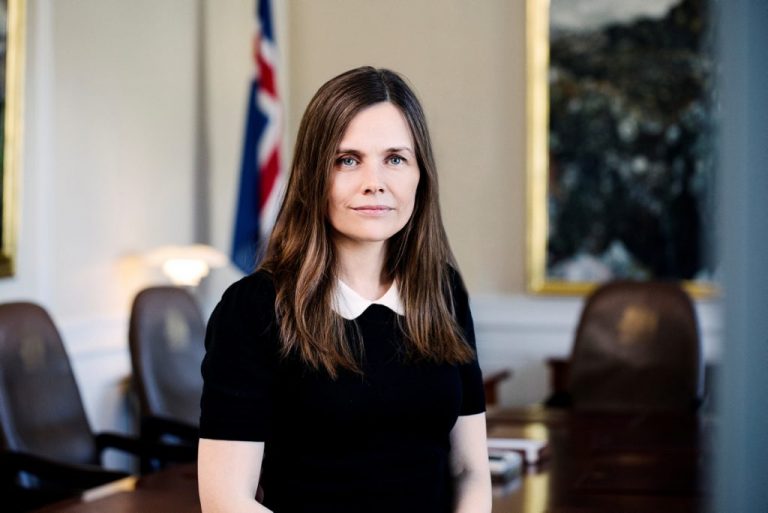Trans people in Iceland could soon see improvements to their legal rights, thanks to a government bill that will be tabled in the coming months.

Despite some gains made in recent years, the status of trans people in Iceland is still criticized by many in the country, especially when it comes to their treatment in the health care system. Critics have said the system is “outdated” for subscribing to a binary way of thinking about gender, while others have even called it “inhumane,” singling out the requirement that trans people be diagnosed with a mental illness to access care.
“The aim is to ensure people’s rights to self-determination and to bodily and mental integrity,” says Icelandic Prime Minister Katrín Jakobsdóttir about the new bill. GayIceland spoke with Katrín to learn more about the bill, which she says could be brought to parliament as early as the end of February.
“It’s a bill that has been in the pipeline for some time, and actually came about because of the initiative and encouragement of both Intersex Ísland and Trans Ísland,” Katrín says. She adds that her party, the Left-Green Movement, began working on the bill while they were in opposition.
“I think what we can do in Iceland is that we can and we should be in the forefront when it comes to LGBT rights.”
Although she isn’t able to provide many specifics about the bill, she does confirm that it would confront criticisms about how trans people are treated in the health care system. “It comes down to looking at it differently, not as a health issue but as a rights issue,” she says. “I think it’s really about changing the way we approach this group.”
In addition to this bill, Katrín says her government will also be tabling a parliamentary resolution for an action plan on LGBTQI people, which will address issues beyond just the rights of trans people.
“One of the issues that has been mentioned to me is when it comes to education,” Katrín says. “For example, how is the education system dealing with LGBT+ people. I think we have seen a lot of progress, but can we do more.”

To further commit to improving the rights of LGBTQI people and other minorities in Iceland, Katrín says the government’s Office of Equality was transferred to the Prime Minister’s Office in January. “It’s an important goal to make all the ministries work the best together when it comes to gender equality and LGBT rights,” she says about the decision.
Since then, she says she’s been regularly meeting with LGBTQI organizations to give them the opportunity to voice different concerns. Another issue that has been raised in these meetings is the safety of elderly trans people in retirement homes. “I think this is something that we need to look into in relation to the action plan I mentioned,” Katrín says. “We will need to ensure that they will of course be accepted in retirement homes.”
Trans, intersex and non-binary people in Iceland have also raised concerns about being harassed in public swimming pool changing rooms. Katrín says she’s open to looking into that issue as well, although she acknowledges that pools are run by the individual communities, so any changes would have to be done in cooperation with local communities throughout the country.
“I live in Reykjavík and I think that most of the Reykjavík pools have actually set up specific changing rooms to accommodate trans, intersex and non-binary peoples. Now of course that’s not in smaller communities, probably that has not been done,” Katrín says. “But it’s a very important topic and maybe we can do something in cooperation with local communities. Swimming pools are a really important part of the Icelandic culture, I think they’re the reason we all live here in this cold, so it’s essential that everybody should feel welcome there.”
“ … when you sit there for two hours and take questions and realize that a lot of things that people take for granted are definitely not for granted for everybody.”
Although Katrín says LGBTQI issues have always been “close to her heart,” she says she was spurred to action on the issue in 2013, when she was asked about why Iceland was dropping in the ILGA-Europe Rainbow Europe Rankings. Between 2010 and 2018, Iceland has fallen from the sixth to the eighteenth spot in the annual ranking of European countries based on the legal rights afforded to LGBTQI people.
“I remember thinking, ‘I will do something about this,’ ” Katrín says. “I think what we can do in Iceland is that we can and we should be in the forefront when it comes to LGBT rights. We want to be credible advocates for human rights internationally, and now we have a seat in the United Nations Human Rights Council, so we need to be very sure that we are ensuring human rights at home.”
Katrín says she doesn’t think Iceland has fallen down the rankings because of resistance to greater legal rights for LGBTQI peoples, but because people have become complacent.
“Sometimes when you accomplish something, you tend to say, ‘Okay, this is a good job, let’s move onto something else.’ But the fact is that the human rights debate is always evolving,” she says. “So I think it’s important that you always have to be really on your toes, as we say in Icelandic, when we are looking at rights because things can change pretty fast and we need to be always on the lookout to defend people’s human rights and really making sure that no one gets left behind.”

Katrín also readily admits that she is still learning about the issues affecting LGBTQI communities in Iceland. Since she entered politics, she says it’s been important for her to consult with grassroots organizations to learn more about the issues affecting their communities.
“A moment that stands out was when I first entered parliament and I took my first meeting that was actually with Samtökin 78,” she says. “Even though you read about these things, these hindrances that people are fighting in their daily lives, when you sit there for two hours and take questions and realize that a lot of things that people take for granted are definitely not for granted for everybody.
That was really an eye-opener, that must have been 10 years or so ago. But I really can still recall that meeting because it’s my personal opinion that you need the people in the grassroots movements to drive the pragmatic politicians. They are a very important driving force when it comes to progress in society.”
Katrín says she is “optimistic” that the bill will be well-received by parliamentarians from other parties. If the bill passes through parliament, she says trans people could start seeing improvements by next year.
See also: WILL NOT PUT ICELAND IN THE FOREFRONT WHEN IT COMES TO LGBTI ISSUES
Main photo / Aldís Pálsdóttir


